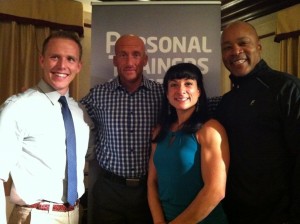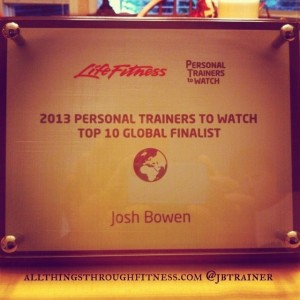By Artur Davis, on Thu Oct 10, 2013 at 10:00 AM ET The conventional take on the government shutdown is that it is a colossal blunder, but one largely of tactical dimensions: John Boehner underestimating the risk of trying to co-opt Ted Cruz’s brinksmanship gambit; Cruz and his think tank strategists miscalculating public angst over the healthcare law as a license for obstructionism. All true, but at the danger of missing the more substantial reality: the shutdown continues because it is remarkably popular on much of the political right. That is still the case after a week of unmitigated bad publicity for Republicans; it will likely remain so up to and after the point someone invents a fig leaf to make it end. And a Republican base that is undaunted in the face of such a debacle will keep limiting the party’s options with its ready-made barbs about sell-outs and pandering.
And what is an even more depressing truth? Those Republicans who are most at odds with the shutdown have some complicity here too. And no, it is not that they have been weak-kneed deal-cutters whose moderation created a demand for “principled” confrontation. (I have seen only two genuine deals in Washington in nine years: Democrats bending on top bracket tax cuts in late 2010 and Republicans doing the same, from the opposite vantage point, in early 2011, and I don’t hear tax relief for millionaires as an applause line in many Tea Party venues).
The real culpability for us right of center types? They (we) have been too timid in dealing not with Democrats but with a certain variation of conservatism. Those of us on the right who envision conservatism as a brand of public policy and not an enemy of the concept, who conceive that a more cohesive society is a legitimate conservative mission, and don’t confuse the left’s newest ill conceived initiatives with the fading hours before a socialist midnight, could and should have fought harder to keep the right from becoming radicalized. Instead, we soft-pedaled our own sense of responsibility. We bargained on absorbing a hard-right insurgency when we should have been looking harder at its assumptions, and its radicalism.
When it got fashionable to peddle theories that voters—that is, our fellow citizens—were divided between productive contributors to capitalism and coddled takers of government giveaways, too much of the thought leadership of the party sagely nodded. And then when our presidential nominee got caught saying the same thing, we rolled our eyes at his political tin ear without acknowledging that what he said was actually an article of faith in some of our ranks.
We allowed a lot of simplicities to frame our positions on complex issues. For example, we undermined our valid skepticism about the Democratic environmental agenda with muddled charges that science is a conspiracy. We cheapened our warnings about the lingering depth of the Great Recession with pot-shots that the media and the Labor Department were cooking the unemployment numbers.
We showed a little resistance to the hard-right’s musings about abortion and “legitimate rape” and did our share of distancing from mandatory ultrasounds and personhood laws. But the noisiness of these culture wars seemed to worry us more than their inherently un-conservative, big government character—and in our too tepid responses, we missed a chance to arrest the gender gap that is single-handedly turning states like Virginia.
 We just shifted in our seat when the diatribes about the machinations of our liberal opponents crossed lines. When the jabs evolved from ritualistic partisanship into an insinuation that we were facing enemies who didn’t share our reverence for the country, our silence implicitly condoned the vitriol. We just shifted in our seat when the diatribes about the machinations of our liberal opponents crossed lines. When the jabs evolved from ritualistic partisanship into an insinuation that we were facing enemies who didn’t share our reverence for the country, our silence implicitly condoned the vitriol.
We didn’t stress enough over the evidence of a gulf between Americans in our respective visions of culture, of the economy, of the very legitimacy of government. If we were bothered that people who view their adversaries as illegitimate will coarsen civic dialogue, we rarely said so, unless it was the left throwing stones at our crowd.
We properly celebrated the grassroots populism on the right for the pragmatic reason that it finally gave Republicans the organizing mechanism to turn our base out; and for the intrinsic reason that activism is the essence of our democracy. But we weren’t quick enough to insist to the movement-minded among us that a political party is at its core not a movement: a party exists to mobilize to win campaigns and in a fractured electorate, winning requires being coalitional rather than ideologically pristine. We developed a weakness for rewarding provocateurs with the spotlight, as if unseriousness were not a ticket to perpetual minority party status.
We were entirely justified in noticing that conservatism had been demonized into the one permissible category for ridicule and verbal abuse. But we seemed so frustrated at our lost ground that we were tone deaf about how our partisan anger played to a middle class preoccupied with its own struggles—therefore, we missed the impression that we were more outraged about our own powerlessness than the powerlessness of the blue collars who not so long ago were part of our political base.
Read the rest of…
Artur Davis: How the Right Turned Radical
By Josh Bowen, on Thu Oct 10, 2013 at 8:30 AM ET  When I look back on my time spent in the fitness industry, I feel like I have lived several lifetimes. I have been blessed with opportunities that most would die for. I am greatly humbled by all my experience in the fitness industry but my recent endeavor tops anything I ever imagined I would accomplish. To be considered one of the best in the world in anything is extraordinary but to do it in an arena you are so in love with, makes your life. Let me recap the past several months… When I look back on my time spent in the fitness industry, I feel like I have lived several lifetimes. I have been blessed with opportunities that most would die for. I am greatly humbled by all my experience in the fitness industry but my recent endeavor tops anything I ever imagined I would accomplish. To be considered one of the best in the world in anything is extraordinary but to do it in an arena you are so in love with, makes your life. Let me recap the past several months…
 On August 2nd I received an email stating I was a finalist for the 2013 Life Fitness Global Personal Trainers to Watch competition. Out of nearly 1600 entries in 43 countries, they selected a country boy from Lexington, KY as one of the top 10 best trainers on the planet. My breath was taken away. I nearly cried in the gym. After being told of the sale of Urban Active just 10 months earlier my life had taken a roller coaster ride. My love was taken away from me, the place that I felt like I helped build was gone and I needed to move on. This news was what I needed and I couldn’t have been happier. On August 2nd I received an email stating I was a finalist for the 2013 Life Fitness Global Personal Trainers to Watch competition. Out of nearly 1600 entries in 43 countries, they selected a country boy from Lexington, KY as one of the top 10 best trainers on the planet. My breath was taken away. I nearly cried in the gym. After being told of the sale of Urban Active just 10 months earlier my life had taken a roller coaster ride. My love was taken away from me, the place that I felt like I helped build was gone and I needed to move on. This news was what I needed and I couldn’t have been happier.
After a long 20 days we were allowed to tell friends, family and the social media world. The outpouring of support was incredible. It really showed me how much I had made a difference in people’s lives and made me very happy that they were following me and cheering me on. I felt like I had already won. Regardless of the decision that would come a month later, this kid from Kentucky had made his mark on so many people and that made this honor a victory before the competition started.
 Heading into the competition in England, I wanted to be as prepared as I could. I had clients throw different scenarios at me to test how quick I could act on my feet, something I would have to do when I got to England. I also read everyday to stay abreast of all the great new information that is imputed everyday. I was ready for this challenge and I welcomed it. With the support of everyone as felt like I could put the world on my shoulders and run with it, this was my finest accomplishment. Heading into the competition in England, I wanted to be as prepared as I could. I had clients throw different scenarios at me to test how quick I could act on my feet, something I would have to do when I got to England. I also read everyday to stay abreast of all the great new information that is imputed everyday. I was ready for this challenge and I welcomed it. With the support of everyone as felt like I could put the world on my shoulders and run with it, this was my finest accomplishment.
Having never ventured outside the United States before, I had some apprehension on traveling internationally. But I am thankful I have several clients who have traveled abroad and they reassured me everything would be ok once I touched down in the United Kingdom. And as promised, when I made that long journey across “the pond” everything turned out great.
I arrived in London, England after an all night flight with no rest but with two things in mind, listen and learn. As much as I wanted to enjoy the country, I wanted to compete and learn from the best in the world. This was about the art form I had learned 10 years ago and putting my talents up against 9 other people from around the globe and learning as much as I could from them. I did do some sight seeing in St. Albans, England, the eldest city in the United Kingdom that dates back to the Roman Empire. The town was quaint, quiet and very nice. It’s history was rich but the time I took to tour, all I could think about was what the next day would present.
 As expected, the competition day will go down as my most proud moment of my career on a personal level. To represent my clients, trainers, family and my country meant everything to me. Also as expected, the caliber of trainers that were selected were the very best. We were the top 10 on planet Earth in something we had devoted our lives to and was so passionate about. There is nothing better than that feeling. In accordance with competition, we were paired with a volunteer client to train. And not only did we have to train a stranger on the spot but train them for 15 minutes and do it in front of an audience of 50 in the gym and countless live on the Internet. This brought my best out, I loved it. After 31 years on this Earth, this was what I lived for. When my time came for me to train, I wanted to bring the house down. As expected, the competition day will go down as my most proud moment of my career on a personal level. To represent my clients, trainers, family and my country meant everything to me. Also as expected, the caliber of trainers that were selected were the very best. We were the top 10 on planet Earth in something we had devoted our lives to and was so passionate about. There is nothing better than that feeling. In accordance with competition, we were paired with a volunteer client to train. And not only did we have to train a stranger on the spot but train them for 15 minutes and do it in front of an audience of 50 in the gym and countless live on the Internet. This brought my best out, I loved it. After 31 years on this Earth, this was what I lived for. When my time came for me to train, I wanted to bring the house down.
I met my client, Newal, at lunch and was so impressed with him. At 64, he worked out everyday, kept his stress low and legitimately enjoyed life. He had climbed Mount Everest, been on several safaris and wanted to live as long as he could. Upon meeting me, he told me to bring it! I told him to be careful what he wished for. When our time came to train, we tore the house down. At 64, Newal was in better shape than most half his age. He beautifully executed all the exercises I gave him with zero rest, he was out performing his own best efforts and making me look great  It was poetry in motion and I owe it all to him. He rose to the occasion for me to show my best material on a worldwide stage. After we were finished I knew we had done something special. Now just needed to wait for the judges verdict. It was poetry in motion and I owe it all to him. He rose to the occasion for me to show my best material on a worldwide stage. After we were finished I knew we had done something special. Now just needed to wait for the judges verdict.
In the end this competition had nothing to do with winning or losing, it was about celebrating our achievements and contributions to an industry that needs more of us. I feel as if we all won, on our way to being the absolute best in the world. I appreciate my 9 new found friends and their approach to fitness, we are all different yet all the same. The common denominator being our quest to be the best in an industry we love so much. My life is forever changed by this experience. Thank you Life Fitness, all my family and friends and my clients, this was for you.
By Jason Grill, on Wed Oct 9, 2013 at 1:30 PM ET  We are 28% there in 1st Week.
We started the Sock 101 campaign just last Tuesday and, thanks to you, we have raised over $7,166! 130 donors to date. Thank you for supporting us!
We still need your help spreading the word. Sock 101 has 22 days to raise the remaining money! We know we can do it with your support!
Check out our campaign here!
If you haven’t pledged to get your socks, would you consider pledging today? We need to reach our goal in order to launch and grow other exciting offerings moving forward. We are 28% there in 1st Week.
We started the Sock 101 campaign just last Tuesday and, thanks to you, we have raised over $7,166! 130 donors to date. Thank you for supporting us!
We still need your help spreading the word. Sock 101 has 22 days to raise the remaining money! We know we can do it with your support!
Check out our campaign here!
If you haven’t pledged to get your socks, would you consider pledging today? We need to reach our goal in order to launch and grow other exciting offerings moving forward.
Check out the Sock 101 Kickstarter campaign, choose a perk that suits you, and pick out which socks you want us to send you. It’s that easy!
We are offering discounts for Earlybird Funders which save you about $12 off our normal pricing! What a deal!
Also, please continue to share our story!
 Please share this email about our Kickstarter Campaign via email, Facebook, Twitter, phone calls, text messages and through old fashioned conversations. This is the key to going viral and spreading the Sock 101 story and new line offerings. Please share this email about our Kickstarter Campaign via email, Facebook, Twitter, phone calls, text messages and through old fashioned conversations. This is the key to going viral and spreading the Sock 101 story and new line offerings.
By John Y. Brown III, on Wed Oct 9, 2013 at 12:00 PM ET It has been over a week since I first learned (as part of several other “spoiler alerts”) that Walter White of the TV series Breaking Bad dies in the series finale.
Even though he was only a fictional character in a fictional TV series, I got attached to Walter (or Walt, as I –and those who knew him well–preferred to call him). And even with nearly 10 real days having passed to grieve the death of a made-up person, I am not progressing well and unable to fully come to grips with his demise (as well as the show’s demise).
It’s not that I support glamorizing meth dealers in any way. Nothing could be further from the truth. But there’s something about Walt that I related to and made me cheer for him, despite his morally ambivalent situation that turned into morally atrocious nightmare but still somehow was understandable at some level.
I had a soft spot for Walt from the start because in my college intro to philosophy course we were given a hypothetical question about a husband and wife where the wife was dying of a terminal disease and the husband had to break the law to obtain the life saving drug he couldn’t afford. I was the only one in the class who vocally supported the husband stealing the life saving drug as morally justifiable under the circumstances. And I still do. And would like to hear my former classmates explain to their spouses tonight–for old time’s sake–why they wouldn’t be able to justify stealing the miracle drug to save their life.
That hypothetical was, more or less, the basic plot for the series Breaking Bad. With a few new variables….and unintended consequences.
I am not saying that Walt represented getting in touch with the inner meth kingpin that lives deep down in every middle-aged man. Not at all. But he did represent the getting in touch with the inner king, of sorts, that lives deep down in every man and wants to find a voice before he dies. Walt did realize that part of himself before it took over and became an ugly and dangerous tyrant that ultimately destroyed him. But he made the journey. And it was an rewarding TV journey to follow. From milquetoast repressed cowardly “soft man” to living out every instinct he had repressed for so long….and taking it to it’s logical extreme.
 “Every virtue, taken to an extreme, becomes a vice” taught the ancient Greeks. I learned that, too, in my intro to philosophy course. “Every virtue, taken to an extreme, becomes a vice” taught the ancient Greeks. I learned that, too, in my intro to philosophy course.
As Walt explains to his long suffering wife in one of the final scenes. “I did it because it made me feel alive.” Isn’t that what each of us is after in our own less destructive and more conventional way?
As fictional characters go, we lost a good one last week.
RIP Walter (Walt) White.
By RP Nation, on Wed Oct 9, 2013 at 10:00 AM ET I think it is agreed by all that our nation is politically fractured. The solution is obvious: cleave in half, becoming two separate but friendly nations with a shared history and a cooperative future.
I make this modest proposal at a time when the government is likely to remain closed for some undetermined period of time and there is an open question about whether we will honor our financial obligations. No one wants these results, but both sides prefer government closure — and potentially default — to forfeiting principle. Rather than a Hobson’s choice why not face the fact that each side should be able to have a representative government that reflects its belief structure? I can claim no special insight in suggesting this reasonable course of action, as the idea originated with Gov. Rick Perry.
For those naysayers who say it cannot be done, I echo Ted Cruz who has asked that we shoot for the moon. How could we determine which parts of America become Country A and which Country B? The answer is clear — we have already picked our future camps. Eighty members of the House of Representatives have asserted that it would be better to have the government close than fund Obamacare. In contrast, other members of the House and large sections of the Senate believe that continuing to fund the government is important, especially since there is no chance that Obamacare will be defunded.
The question of national destiny should be put to a vote, with each House district deciding which country to join. After ten years, the question could be put to the population again. Then the two countries would be set for half a century until there would be one final vote, setting forever the boundaries of two Americas.
Any current U.S. citizen would be free to move to either country — there would be a totally open border. If there would be any areas in which either country might want to work together, they could do so by mutual agreement.
Imagine the relief for both Americas. We could move ahead to deal with such national issues as infrastructure needs, immigration reform, gun control, education, climate mitigation, and such things as harvesting science to advance the national health. Or not. We could predict that one country would include New England, the Washington, D.C.-Boston corridor, the Pacific coastline, and the more populated sections of the west.
 Most of the south and portions of the Midwest would make up the second country, supplemented by numerous rural districts in the west and in Pennsylvania. The good people of this second America truly believe “Obamacare” is killing jobs, are opposed to any gun control, would rather have low taxes on billionaires than ensure that babies have sufficient food, believe that global climate change is a fraud and that Voting Rights legislation limits freedom. Given these beliefs, why should they be married to people with such different viewpoints? Most of the south and portions of the Midwest would make up the second country, supplemented by numerous rural districts in the west and in Pennsylvania. The good people of this second America truly believe “Obamacare” is killing jobs, are opposed to any gun control, would rather have low taxes on billionaires than ensure that babies have sufficient food, believe that global climate change is a fraud and that Voting Rights legislation limits freedom. Given these beliefs, why should they be married to people with such different viewpoints?
And why should the other citizens of America, who believe that a vocal minority of the population have hijacked the nation’s politics and prevented progress, be similarly weighted down?
Give everyone what they want — their own country to govern with cohesive values.
I suggest this not because I have the least personal interest in endeavoring to create two Americas. I have no other motive than the public good of my country, advancing our trade, providing for our children’s future and advancing the hope that some united national purpose may once again bloom, even if it has to bloom twice.
Sharon Heaton, a Friend of The RP, is a Managing Partner at Wellford Energy. This piece was cross-posted at The Huffington Post.
By Jason Atkinson, on Wed Oct 9, 2013 at 8:30 AM ET
By Lauren Mayer, on Tue Oct 8, 2013 at 3:00 PM ET I often tell people I have 3 boys, ages 17, 20, and 47 – like many men, my husband is an overgrown teenage boy when it comes to some things, particularly his sense of humor when he’s around my actual offspring. They share a love of sophomoric and off-color jokes, ranging from flatulence to ‘that’s what she said,’ and none of them miss an opportunity to point out when an object or a name has any sort of phallic connection. And it’s not just the obvious – e.g. Anthony Weiner jokes. For example, in one recent morning paper I saw a reference to the short-lived Cory Booker scandal – apparently the Newark Mayor and Senate candidate had engaged in some harmless but flirtatious texting with a woman who worked in a vegan strip club. I thought that was funny and read it out loud to my husband and 17-year-old, and after they exchanged a series of lines about what kinds of meat were off-limits, my son chimed in, “So are people who go there vagitarians?” (When my boys were younger, Husband 2.0, who is not their dad, decided he had a novel way to cure them of inappropriate language. One night when I went off to a gig, he informed us all that they would have ‘swearing night’ over dinner, so they could get it all out of their systems. As you may suspect, not only did it not stop the swearing, it actually enhanced their vocabularies. But I digress . . . . )
I don’t have many ways of distancing myself from the frat house atmosphere in which I reside, so when I find one I take advantage of it. I painted my office a distinctly feminine lavender, I listen to classical music in the kitchen, and up til now I refrained from humor about the Speaker of the House, with his teenage-boys-find-hysterical last name. However, his role in the government shut down provides too much inspiration for me to ignore any longer. (That, and I’m probably worn down by the endless Family Guy quotes exchanged at my dinner table . . . )
By Jeff Smith, on Tue Oct 8, 2013 at 1:30 PM ET
Ben White, Matt Zeitlin and Tim Carney are our guests this week.
With guest host: New School Professor and former Missouri Senator Jeff Smith
Show produced by Katherine Caperton.
Original Air Date: October 5, 2013 on SiriusXM “POTUS” Channel 124.
Listen to the show by clicking here.
Show also available for download on Apple iTunes by clicking here
 Hi – I’m Jeff Smith, public policy professor at The New School in New York City, sitting in for Josh this week – a week full of political intrigue. Between Senator Ted Cruz’s theatrics, the government shutdown, the Obamacare rollout, and the looming debt ceiling, there’s a lot to talk about – and the standoff also raises intriguing questions about party alignment. This week we hosted three reporters who’ve been in the thick of it, Politico’s Ben White, Buzzfeed’s Matt Zeitlin, and the Washington Examiner’s Tim Carney. Hi – I’m Jeff Smith, public policy professor at The New School in New York City, sitting in for Josh this week – a week full of political intrigue. Between Senator Ted Cruz’s theatrics, the government shutdown, the Obamacare rollout, and the looming debt ceiling, there’s a lot to talk about – and the standoff also raises intriguing questions about party alignment. This week we hosted three reporters who’ve been in the thick of it, Politico’s Ben White, Buzzfeed’s Matt Zeitlin, and the Washington Examiner’s Tim Carney.
* * *
Few political science concepts have been as heatedly debated in academia (and in journalism, to a lesser degree) as the term “realignment.” Some scholars argue that party realignments happen in a single election; others say they take decades. Some define realignment as a durable shift in the voting behavior of certain groups, while others stress elite-level policy shifts. During realignments, a “rare, massive, and enduring shift of the electoral equilibrium” occurs, and while some suggest that realignment occurs through mobilization of new groupsor generational replacement, others stress actual partisan conversion in the electorate. Whatever the cause, the shift profoundly alters party coalitions and the relative strength of various factions within them.
Alignments typically occur when the dominant issue cleavage in a political system is disturbed by a new set of issues leading to widespread public demand for action. Given a two-dimensional issue space – imagine economic issues on one axis and cultural issues on the other – the minority party will naturally attempt to shift the focus of political debate to issues which will help it divide the other party’s coalition and attract more voters – which is what Republicans are attempting to do by focusing on Obamacare, which unites Republicans but splits Democrats from Democratic-leaning independents. Repeated iterations of such attempts by political parties may gradually produce a rotational movement of party realignment over time in a two-dimensional space. Such rotation helps explain why the 2000 electoral map was almost the mirror image of the 1896 map: it wasn’t that electorates in Nebraska and Manhattan traded their world-views and economic interests over decades; it was that in many respects, the two parties traded places. A realignment, then, comprises two elements: 1) a newly dominant issue cleavage and 2) a transformation not of political preferences generally but of the way that people holding those preferences align by party.
And so, although this week’s show mostly focuses on the shutdown and debt limit default, we also raise broader questions about how these battles may affect party alignment. For instance, does Wall Street’s alignment with the president against the Tea Party portend a broader switch of allegiances to a pro-business Democratic party under the banner of Wall Street-backed Hillary Clinton versus a populist Ted Cruz or Fed-auditing Rand Paul? Or might the emergence of a Clinton candidacy buoyed by Wall Street bundlers inspire a Warren-esque anti-financier insurgency that attracts elements sympathetic to both Occupy and anti-bailout libertarians – particularly if Wall Street-backed Chris Christie is the Republican standard-bearer?
This week, Polioptics fans get to hear three whip-smart young journalists –Politico’s Ben White, Buzzfeed’s Matt Zeitlin, and the Washington Examiner’s Tim Carney – delve into all of this and more. Matt and Ben explain the shutdown’s economic impact and the financial implications of default – globally, and locally – with an eye towards possible shifts in party alignment that might result from Washington’s current battles. And Tim takes a deep dive into the future of the Republican Party – and the conservative movement more broadly. Three unique perspectives not just on today’s news, but on tomorrow’s…and perhaps next year’s as well.
By John Y. Brown III, on Tue Oct 8, 2013 at 12:00 PM ET
Sometimes I stumble across a new website and it is like free falling into a black hole.
I start clicking and next thing I know 45 minutes has passed. Or 2 hours. Or longer.
One topic of interest leads to another topic and so on and so on until you are in a zone and are in the thrall of the thrill of discovering a brand new website that “you get” and that “gets you.”
It can be a time waster, of course…but also very much a reflection of who you really are— and where you are in your life.
Which makes me a little skittish about boastfully recommending the very compelling, timely, topical and substantive new website I found tonight:
AARP.org. ===
AARP is just too stodgy an acronym to make people turning 50 want to join. It doesn’t sound topical or interesting. Or like it has activities that someone 49 would ever look forward to participating in.Instead, it sounds like a place to go to play bingo and have group exercises in tho pool. With a the cafeteria that serves lots of soup and easy-to-chew entrees…..and probably offers prunes as a side dish at every meal.
It’s re-branding time.
We need a new name. And we know how to do this. Or at least the pharma companies that cater to us do.
How about Flomax! (with an exclamation point)? That sounds like an aging super-hero (with a cape and a dignified cane to beat off the bad guys). But it sounds fun too. Like a group with activities such as white water rafting, skiiing, surfing and Boogie Boards (with hand rails). But it’s better than AARP.
I don’t even know what AARP stands for. Ok. I do now. I just looked it up. American Association of Retired Persons. And if you’ll note that is without an exclamation point.
Who wants to join a group that makes you think of being put out to pasture—but protected somehow. And with some group activities so you don’t reach enfeebled oblivion sooner than expected.
No. No. No. If you look at the website it can clearly be cool to be 50 and over. Or at least 50–55. It’s not that old. Not really. OK, it is “that” old. But it’s not, like, a death march. It’s no the end! Only the beginning of the end. Or…..maybe…..the beginning of the beginning of the end. Or BOTBOTE. Bot and bote. Sounds a little French…but so does AARP. But BOTBOTE sounds like some place I wouldn’t mind seeing on the 4th day of a tourist trip to France. Not looking forward to it….but not dreading either. And keeping the possibility open of being surprised. AARP –if it was on the itinerary of the same trip, on the other hand, sounds like something you’d want to avoid before lunch or dinner. And that you’d quickly snap off a few pictures off and leave —before someone mistakes you for someone who belongs in that group rather than a tourist walking by.
I’m going with BOTBOTE. It’s mysterious. Doesn’t seem to ask a lot of us. But if we are at Barnes & Nobles and want the magazine, we wouldn’t have to buy another magazine (like Pscyhology Today) to hide it under as we walked to the counter. BOTBOTE could be something we buy with our coffee in the cafe. Along with a bowl of fancy tomato soup and a over-sized bran muffin. ; )
By Jonathan Miller, on Tue Oct 8, 2013 at 10:00 AM ET Love this from The Times of Israel:
New hasbara YouTube sensation “Boycott Israel” could only have been written by musician Ari Lesser.
A political science BA from the University of Oregon, the 27-year-old ba’al tshuva reggae rapper is probably the only musician around capable of undertaking the long hours of research involved in making the extremely informative, catchy six-minute song.
“Boycott Israel,” sponsored by the pro-Israel campus advocacy group Here Is Israel (with the motto “get HII for Israel”), is a fascinating, rhythmically rhymed exposure of the double standards involved in the global BDS (Boycott, Divest, Sanction) efforts against Israel.
The fledgling organization, actively running since July, is trying to create content to appeal to US college students, says Lesser from his Cleveland home.
“The campus can be a rough place for Jews and Israel, I’ve experienced that first hand. There’s definitely some intense stuff out there.”
Lesser was commissioned by HII to create something that would reach college students and show how to defend against BDS claims.
Lesser decided to focus on showing what he calls “the double standard inherent in the boycott argument.”
In “Boycott Israel” Lesser raps about the obscene human rights failings of dozens of countries, from China to Saudi Arabia to the United States. Accompanying the straightforwardly shocking lyrics are graphic images of horrific events, some ongoing, around the world.
“Big props to Human Rights Watch and Amnesty International for going to these countries and doing good reporting. I wouldn’t want to go to a lot of those countries; I’m glad someone else did it for me.”
He’s quick to say that while as a religious Jew he feels a deep connection to the Land of Israel, he doesn’t always agree with what the State of Israel is up to.
“It’s not to say that Israel is always right — I definitely criticize when I disagree — but I don’t think a boycott of the whole country is honest.”
“Really, you see if you’re not willing to boycott every major country — and minor country — in the world, then BDS is anti-Semitism, or anti-Israelism, or whatever.”
|
The Recovering Politician Bookstore
|
 We just shifted in our seat when the diatribes about the machinations of our liberal opponents crossed lines. When the jabs evolved from ritualistic partisanship into an insinuation that we were facing enemies who didn’t share our reverence for the country, our silence implicitly condoned the vitriol.
We just shifted in our seat when the diatribes about the machinations of our liberal opponents crossed lines. When the jabs evolved from ritualistic partisanship into an insinuation that we were facing enemies who didn’t share our reverence for the country, our silence implicitly condoned the vitriol.
















